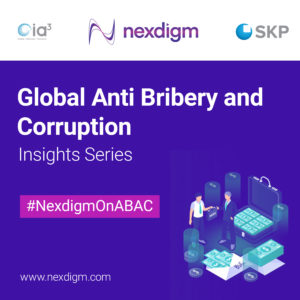
Eric Mayer from GSK Stockmann shares three key areas #compliance officers must focus, adherence of International Laws; Training and Tone at the top. Listen to the full interaction with Sundaraparipurnan Narayanan https://lnkd.in/d3fSK-a #NexdigmOnABAC #NexdigmABAC
Day: July 13, 2020
The CONVERGE community launches this week! If you’ve attended our twice-a-year CONVERGE conferences in Denver and Europe, you know they’re special. There’s a community feeling at CONVERGE, and a sense that we’re all on the same journey to push ethics to the center of business—and in the process, build a better world.
With 2020 unfolding in ways that no one could have predicted, that mission—and the feeling of togetherness in that mission—is more important than ever. The cornerstone CONVERGE conference will happen this fall as scheduled (though online)—and now it’s supported by an entire CONVERGE ecosystem, including an online community, resource center, and a full schedule of year-round virtual events. Philip and Tom break down why the community is different than anything else out there for our profession, why they’re so excited to be a part of it, and give a preview of the CONVERGE20 conference coming up in October.
What is satisfactory due diligence under the FCPA? That question seems to be more important after the story on Unaoil S.A.M. and the subsequent release of the Panama and Paradise Papers. However, both events largely focused on the “who” part of due diligence and the need to know with whom you are doing business with going forward. However, there is another important question which does not come up as often in due diligence, which is how?
How does a third-party perform its services with or for your company? If it is on the sales side of things, howcan a third-party help you make sales? If a third-party comes through the supply chain, how do their products or services meet the needs of your company? If the third-party has a closer business relationship, such as a JV, teaming agreement or other similar arrangement, you may well need a much deeper understand of how this third-party does business because the relationship may well become so close you will be intertwined with the party. It may mean more than simply how does their product work but how does this third-party conduct themselves and their business?
Under the FCPA, most companies understand the need to know with whom they contract for sales or vendor services. They also understand the need to know why they should do business with a proposed third-party (i.e., a business justification). However, the need to perform an investigation into how the third-party can actually deliver the contracted services is equally important.
Three key takeaways:
- The how question can be as critical as the who question.
- The more integrated a third-party is into your operations the more important this question becomes.
- Incorporate a how question into not only your due diligence but also your ongoing monitoring and auditing, after the contract is signed.
In the Episode, I am joined by Eric Young. Eric has been in the compliance field longer than anyone I know and long before it was called Compliance. Eric graduated from Columbia University at the age of 20, with a degree in Economics and has securities licenses with FINRA and is ACAMS-certified. He started with the Fed in 1980 and has 40 years’ regulatory and Chief Compliance Officer experience with the Fed, JP Morgan Chase, General Electric, S&P Global Ratings, and four foreign banks including UBS and most recently, as CCO of BNP Paribas.
Some of the highlights include:
Young has been in compliance longer than anyone I know. He gives us a rundown of his professional career starting with the Fed.
Penn Square. At the time it was the largest bank failure since the Great Depression. What was the significance of Penn Square for the US banking industry and the regulators?
What are the three things Young is most proud of accomplishing in his career?
What are 3 pieces of advice Young would give a new CCO today?
Young tells us about the book he is writing.


